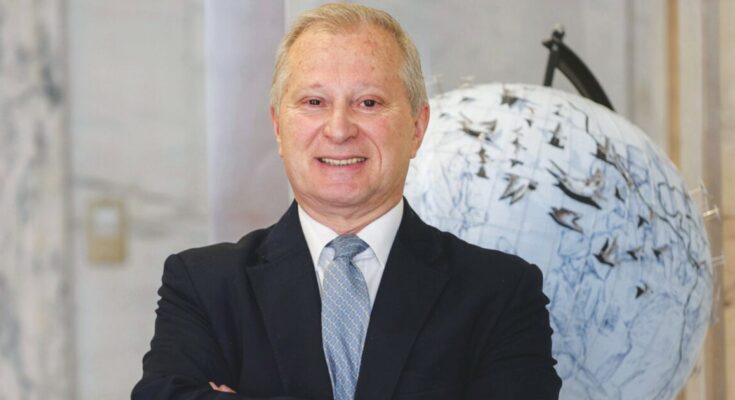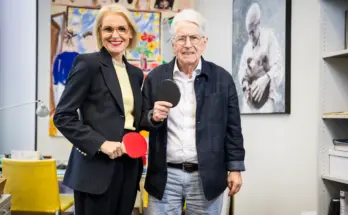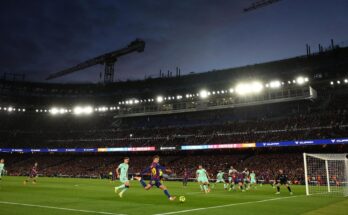Rome, November 22 (Adnkronos Salute) – An intense and authentic story that accompanies viewers on the journey of a woman diagnosed with breast cancer. A path made of fragility and uncertainty, but also strength, awareness and trust in scientific research. All this is the docufilm ‘Il Baggaggio’, promoted by MSD Italia in collaboration with Andos national onlus, Europa Donna Italia, Fondazione IncontraDonna, Komen Italia and Salute Donna Odv. Made by Brandon Box’s production company – a note informs – it will be available on MSD’s YouTube channel and on the tumor-seno.it website.
The film, through the words and gaze of the protagonist, Martina, explores the deepest emotions following a cancer diagnosis. But, most importantly, it conveys a fundamental message: every tumor is different, just as the path of every woman facing it is different. This was confirmed by the competent and passionate voices of the presidents of the 5 patient associations who collaborated in its creation. It is they who bring experience, data and concrete perspectives, helping to highlight the value of collaboration between patients, physicians, institutions, industry and reaffirming the importance of a personalized care pathway for each woman after diagnosis, from therapy options to psychosocial support.
‘Baggage’ is more than just a documentary: it is a call to awareness, trust in science and hope, he explains. “Patients – say representatives of the 5 project partner associations – ask for more information at every stage of their journey to be able to choose to be treated in a specialized center or to know the characteristics of their tumor directly from the diagnosis, so as to access the most appropriate pathways and therapies. In this journey, patient associations represent valuable support: they help to lighten the burden of the ‘baggage’ that each one carries, and act as spokespeople for patient requests in an institution. Every woman has the right to time, space, a personalized pathway, and to physical and psychological support.”
Breast cancer remains the most frequent neoplasm in women in Italy with an estimated 53,600 new diagnoses in 2024. Thanks to advances in research, early diagnosis and increasingly personalized therapy, today 88% of patients are still alive 5 years after diagnosis: currently – the note reports – there are 925 thousand women in our country living with a history of breast cancer. One of the main scientific goals achieved in recent years is the possibility of giving each breast tumor a true identity card, identifying the different forms of the disease and improving their management. “The biological type of the tumor, namely the analysis of its molecular characteristics, is essential to establish the most effective therapeutic strategy – explains Michelino De Laurentiis, Sc director Experimental clinical oncology of breast cancer, National Cancer Institute Pascale Foundation, Naples – Today a woman must not only be aware of having a tumor but must know, straight from the diagnosis, which subtype it is. Only on the basis of this information is it possible to design a personalized pathway for each patient, evaluating whether to proceed immediately or with systemic therapy before surgery.”
This is why it is important for women to turn to the Breast Unit, this is the invitation. “In this structure, breast surgeons, oncologists, radiologists, pathologists, radiotherapists, nurses and psychologists work together from diagnosis to build a personalized therapeutic pathway, based on the latest scientific evidence and the specific needs of the patient – explains Carmen Criscitiello, professor at Humanitas University and head of the breast oncology group at the IrccsHumanitas Research Hospital in Rozzano (Milan) – This organizational model, now recognized as a reference standard at European level, is rewriting the history of breast cancer, offering new treatment possibilities and raising hope even in advanced cases most complex.”
The suitcase – the trunk – that Martina filled and carried from the first scene of the documentary was full of fear and hope, but also trust in the research that allowed us to design a tailor-made path for her, as for any other woman. “Research is literally rewriting the history of breast cancer – underlines Giuseppe Curigliano, professor of Medical Oncology at the University of Milan and director of the New Drug Development division of Ieo in Milan – Today we have targeted therapies, immunotherapies, conjugated antibodies and more and more personalized approaches that allow us to offer hope even in the most complicated cases. Understanding the biological characteristics of each tumor allows us to choose the right treatment for the right patient, at the right time. This is real progress: turning scientific research into the lives and quality of life of women facing this disease.”
As in the documentary, the patient’s journey is not only clinical, but also very human: Martina’s partner plays an important role in the story, as do the doctor and other patients and their network of relationships. “Women face moments of disorientation and vulnerability, where psychological support and the presence of caregivers are fundamental – says Giampaolo Bianchini, head of Breast Oncology at the Department of Medical Oncology, Irccs San Raffaele Hospital, Milan – Caregivers represent a bridge between doctors and patient associations, strengthening the therapeutic alliance with doctors and encouraging the woman’s active participation in her own treatment path”.
The documentary encourages greater awareness among patients, caregivers and the public regarding the importance of personalized diagnostic-therapeutic pathways, which differ by tumor type and follows another awareness campaign, launched in 2024 by MSD (Not all are the same. Breast cancer and the life pathway). Artist Lucia Ocone’s voice acts as a link between the projects. Important moments in the documentary are highlighted by excerpts of a monologue in which in 2024 she tells the experience of a woman who was diagnosed with breast cancer. “Along with prevention and research, correct information is one of the fundamental pillars of our commitment in the field of oncology – says Nicoletta Luppi, president and managing director of MSD Italy – Along with our mission to bring innovation where until now there have been no therapeutic solutions or preventive opportunities, we feel a great responsibility to disseminate knowledge on topics that have a major impact on health. We do this by exploring various channels and languages – from institutional communications to social media, from educational programs to partnerships with the scientific community and patient associations – convinced that only in this way can we achieve wider audience.”
“In this way – he concludes – we raise awareness, support more timely diagnoses and support more effective treatment pathways, putting people and their needs at the center. In addition, we strengthen collaboration with institutions, scientific communities and regions, to turn quality information into concrete actions in the interests of patients. We believe in the power of stories: experiences that give voice to people make information closer and easier to understand. In particular, cinema, with its universal and emotional language, is a powerful tool to raise awareness and encourage preventive behavior and correct information.”



